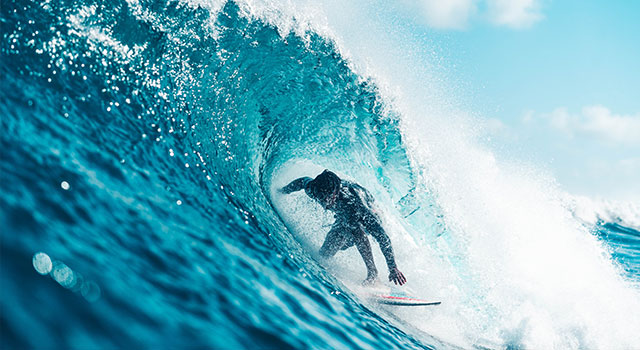 It’s finally summer—and there's no better time to play outdoor sports! But if you’re like many of us, you may be a little rusty from the long winter months. While physical training is important to get back into gear, sports vision training can take you a step further by helping you hone the visual skills you need to excel at your chosen sport.
It’s finally summer—and there's no better time to play outdoor sports! But if you’re like many of us, you may be a little rusty from the long winter months. While physical training is important to get back into gear, sports vision training can take you a step further by helping you hone the visual skills you need to excel at your chosen sport.
Sports vision training is a personalized program that helps professional and amateur athletes improve the way their eyes, brain and body interact. The quicker the brain processes the messages the eyes send, the better the performance.
Benefits of Sports Vision Training
Strong, well-developed visual skills can help you improve your ability to hit a tennis ball or perform the perfect dive in the swimming pool.
Sharpening your tracking, depth perception, focusing, and peripheral awareness skills will help determine the proximity of the water from the diving board or the distance between a baseball and your bat. It should come as no surprise that vision training helps athletes improve their performance in just about any sport.
Sports vision training helps develop the following visual skills:
- Balance – the ability to stay in control of body movement. A surfer, for example, must be able to stand on the board without falling off, all while riding a wave.
- Eye Tracking – the ability to “keep your eye on the ball.”
- Focusing – the ability to rapidly change focus from one object to another efficiently and quickly. For example, in baseball, a player needs to be able to focus on the ball while running.
- Eye-Hand or Eye-Body Coordination – the ability to use your eyes to direct the movements of your hands and body. In tennis, for instance, a player must be able to move his or her body and hands while tracking the ball.
- Peripheral Awareness – seeing things or people, such as opposing players, out of the corner of your eye.
- Depth Perception – the capacity to evaluate an object’s speed and distance accurately and quickly. For example, a diver must accurately evaluate the distance from the edge of the pool in order to dive safely.
- Contrast Sensitivity – the ability to distinguish between an object and its background, such as a baseball against the sky.
- Dynamic Visual Acuity – the ability to clearly see objects in motion.
- Reaction Time – the faster you see it, the faster you react, and the faster you move.
During a comprehensive eye exam, your eye doctor will assess your visual skills in various areas to determine which ones need to be improved. Once assessed, you'll receive a personalized program to boost and expand your visual skills in those areas.
To learn more about sports vision training, contact today!
serves patients from Georgetown, Limehouse, Acton, and Halton Hills, all throughout Ontario.
Q: What is sports vision training?
- A: Sports vision training is a customized program that improves coordination between your eyes, brain, and body when playing sports. Sports vision training helps athletes process information and then react faster and more accurately to what they see on the field or in the water.
Q: Who can benefit from sports vision training?
- A: Whether for surfing, playing baseball, or biking, sports vision training benefits people of any age or level seeking to take their performance to the next level.